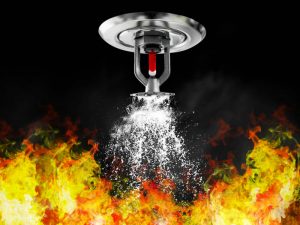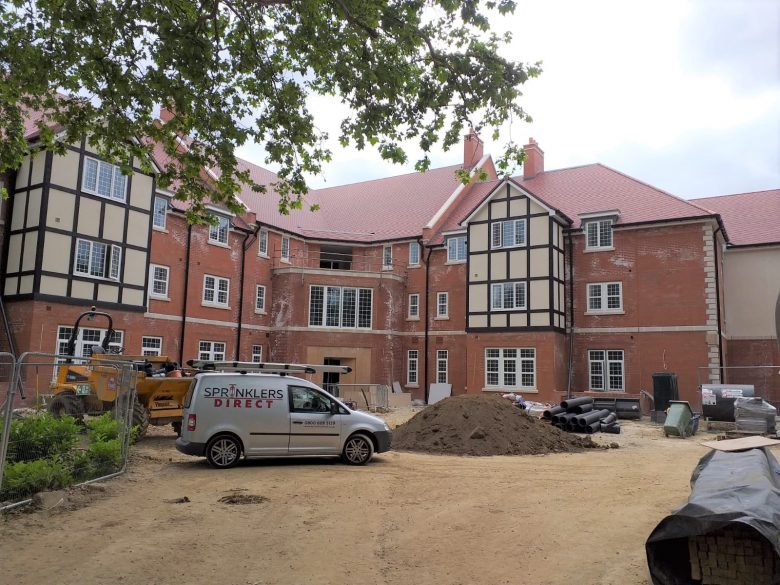Residential Fire Safety: The Role of Fire Sprinklers in Saving Lives
Safety in Our Homes
Our homes are our sanctuaries, a place where we create cherished memories with loved ones. However, the threat of fire can turn our haven into a nightmare. Residential fires pose a significant danger, causing loss of lives, property, and cherished belongings. In this blog post, we delve into the crucial role that fire sprinklers play in enhancing residential fire safety. These unassuming devices stand as silent sentinels, ready to spring into action when disaster strikes, potentially saving lives and mitigating damage.
Understanding the Threat of Residential Fires
Residential fires are more common than we may realize. Each year, thousands of lives are lost, and countless homes are destroyed due to fires. Cooking accidents, faulty wiring, heating systems, and even simple oversights can spark a devastating blaze. The speed at which fires spread is astonishing, leaving occupants with only a precious few minutes to escape. This underscores the urgency of effective fire prevention and suppression measures.

Only the fire sprinkler head closest to the heat source will activate
How Fire Sprinklers Work
At the heart of effective fire suppression lies the fire sprinkler system. These unobtrusive devices are designed to detect and combat fires at their earliest stages. Contrary to popular belief, fire sprinklers do not function as a whole system, but individually. Each sprinkler head is equipped with a heat-sensitive element that responds only to the temperature of its immediate vicinity.
When a fire ignites, the air directly above it heats rapidly, causing the sprinkler head closest to the flames to activate. The activated sprinkler releases water directly onto the fire, effectively containing its growth and reducing heat and smoke. The result is rapid fire control, affording occupants more time to escape and minimizing the damage inflicted upon the property. Read more about What triggers fire sprinklers and can they go off accidentally?
Benefits of Fire Sprinklers in Residential Settings
The advantages of installing fire sprinklers in residential settings are manifold. Notably, these systems provide:
- Early Detection and Suppression – Fire sprinklers react swiftly to fires, often extinguishing them before they escalate into uncontrollable infernos.
- Limitation of Fire Damage – By containing the fire’s spread, sprinklers prevent extensive property damage, leading to reduced repair costs.
- Safe Escape Routes – Sprinklers create a safer environment for occupants to evacuate, ensuring that escape paths are less obstructed by flames and smoke.
Dispelling Myths and Addressing Concerns
There are many misconceptions surrounding fire sprinklers. Some fear that they may inadvertently activate, causing water damage worse than the fire itself. Others worry about the financial burden of installation and maintenance. However, studies consistently show that the benefits of fire sprinklers far outweigh the perceived drawbacks. Modern fire sprinkler systems are highly reliable and are only triggered by direct exposure to the heat of a fire, dispelling concerns of accidental activation.
Installation and Maintenance
The process of installing fire sprinklers in residential settings is less invasive than one might think. New construction projects can seamlessly integrate these systems, while retrofitting older homes is also feasible (Read more on fire sprinkler installation). Regular maintenance, including inspections and tests, is essential to guaranteeing the system’s functionality when it matters most (Read more on fire sprinkler service & maintenance).
Regulatory Standards and Codes for Fire Sprinklers
Various building codes and regulations mandate the use of fire sprinklers in different types of residential properties. Adhering to these standards not only ensures legal compliance but also contributes significantly to safeguarding lives and property. (Read more about BS9251 the British Standard for fire sprinklers)
A Look into the Future: Technological Advancements
The field of fire sprinkler technology is evolving rapidly. Emerging innovations, such as smart sprinkler systems and advanced sensors, promise even more effective fire prevention and suppression. These advancements not only improve safety but also provide homeowners with greater control and peace of mind.
Fire Sprinkler Cost-Benefit Analysis
What is the value of a fire sprinkler? Some may perceive the cost of fire sprinkler installation as a potential barrier, however, a cost-benefit analysis reveals a compelling argument. The financial investment is relatively small compared to potential losses from fire-related damage. Moreover, insurance premiums may be reduced for homes equipped with fire sprinklers, adding to the long-term savings.
The Role of Fire Sprinklers in Residential Fire Safety
In the pursuit of residential fire safety, fire sprinklers emerge as stalwart guardians, offering a rapid and effective response to the threat of fires. Their ability to detect and contain fires in their infancy not only saves property but, more importantly, lives. As responsible homeowners, it is our duty to prioritize fire safety. By considering the installation of fire sprinklers, we take a significant step towards ensuring the well-being of our loved ones and the protection of our cherished homes.







